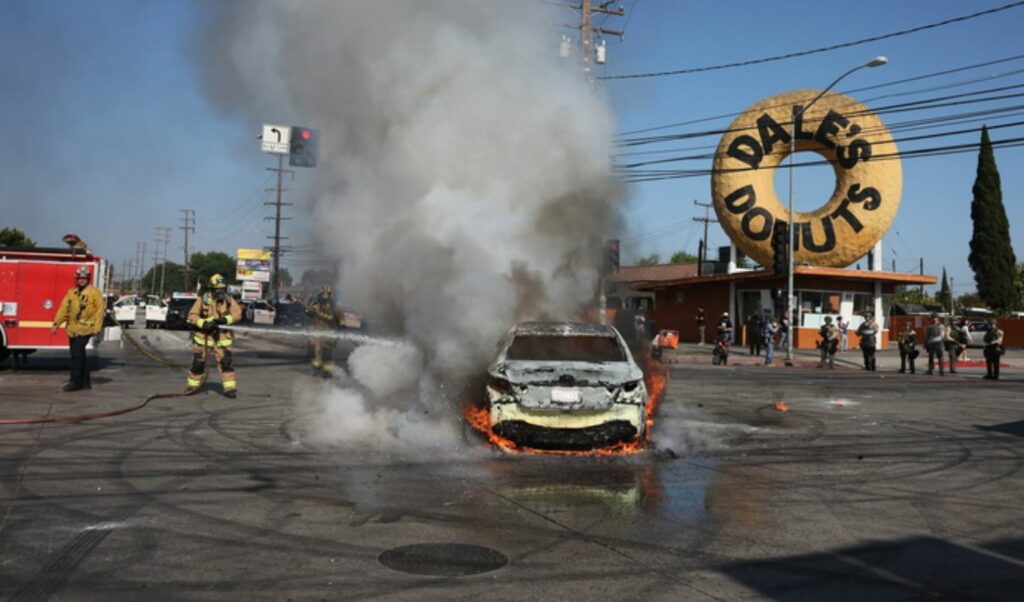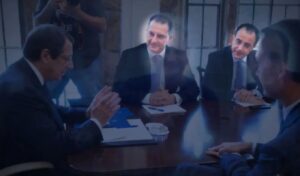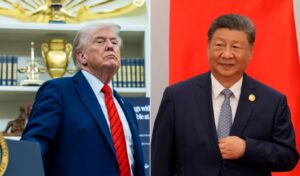A constitutional confrontation with California appears to be escalating as Donald Trump intensifies immigration crackdowns. Trump deployed hundreds of active Marines to Los Angeles and approved the arrival of 2,000 additional National Guard reserves following a weekend of unrest that saw clashes with police and car fires in limited areas of the city. Much now depends on whether he’s simply talking tough or is prepared to drive an already polarized nation into a fateful confrontation.
The President of the United States – the country considered the world’s premier democracy manager for 80 years – endorsed arresting the Democratic governor of the nation’s most populous state. “I think it would be something great,” declared Trump, the only convicted felon ever to serve as president, to reporters while walking on the White House lawn. Later, Trump deployed hundreds of active Marines to Los Angeles and approved the arrival of 2,000 additional National Guard reserves after a weekend of unrest featuring clashes with police and car fires in limited city areas. The protests were triggered by Immigration and Customs Enforcement sweep operations seeking undocumented immigrants in a city and state that are Democratic strongholds.
California and Los Angeles officials reject Trump’s claims that they’ve lost control. Monday night, police repelled protesters throwing projectiles with flash-bang grenades. Trump’s decision to deploy troops despite opposition from California Governor Gavin Newsom represents the latest example of his willingness to exercise extraordinary executive power – often for questionable reasons – and signals a break from his first term, when establishment officials often pulled him back from extreme impulses.
“Trump Violently Bypasses Governor and Mayor Authority, Uses Military as Political Weapon”
Despite Trump’s multiple previous challenges to the rule of law and democracy, a serious new chapter may be opening. “The president is violently bypassing the authority of the governor and mayor and using the military as a political weapon. This unprecedented move threatens to turn a tense situation into a national crisis,” declared Rhode Island Senator Jack Reed, top Democrat on the Armed Services Committee, Monday night. “Since our nation’s founding, the American people have been absolutely clear: we don’t want the military enforcing law on American soil,” Reed said in a statement.
California Democratic Representative Nanette Barragán, whose district includes Paramount just south of Los Angeles, condemned Trump’s troop mobilizations, which she said weren’t justified by the situation. “I believe this indicates dictatorship,” she told CNN’s Jake Tapper. “And the threat he made against the governor to arrest him is quite outrageous.”
Top Trump administration officials are using words like “insurrection.” Unsurprisingly, many observers have interpreted this rhetoric as indicating the White House is prepared to invoke the Insurrection Act – a law that would allow the president to activate troops to suppress an insurrection in a state. No such insurrection exists in California. Trump’s Monday claims that his swift action stopped destruction in Los Angeles are also untrue. The president’s border chief, Tom Homan, meanwhile, told CNN that Democratic officials’ claims that protests intensified because Trump sent National Guard troops were “ridiculous.” Appearing on “The Source” from Los Angeles, Homan said: “It all depends on these protesters’ activities – I mean, they’re making the decisions.”
Los Angeles, California: “The Crisis Path Will Depend on Trump”
Protesters gathered in large numbers in Los Angeles Monday night, raising the possibility of another cycle of tension and uncertainty. The crisis path could now depend on whether Trump continues his theatrical displays, crossing boundaries that modern presidents haven’t touched – especially regarding using troops for law enforcement. It may also rely on protester restraint, who would help him by engaging in more unrest that creates disturbing television images that could fuel Trump’s rhetoric. Creating or escalating a law and order crisis or public safety threat and then using it to justify military use on domestic soil would mirror the methodology of history’s authoritarian leaders. And hopes for restraint are barely supported by Trump’s second term so far.
The president, for example, has invoked highly controversial national emergencies for immigration and trade to unlock rarely-used executive powers without any pushback from the Republican Congress. He’s used presidential power against what he considers centers of liberal power and influence: Ivy League universities, the federal government, and news media. And even in his split with former DOGE chief Elon Musk last week, Trump threatened another power abuse by canceling federal subsidies for the SpaceX chief’s companies.
The administration is preparing for battle, setting a landmark in California for other Democratic states where leaders may be reluctant to cooperate with Trump’s deportations. Obviously, it also perceives a political advantage in the president positioning himself as guardian of public order in a way that allows Republicans to accuse Democrats of defending softer immigration enforcement.
Is Trump Sincere or Bluffing?
But as always with Trump, there’s the question of whether he’s serious about his threats or adopting an extreme position to please his voters or even to create some supposed leverage for himself. Homan, for example, told CNN’s Collins that Newsom had done “absolutely” nothing at this point to justify his arrest. And North Dakota Republican Senator Kevin Cramer adopted the classic Republican line that not everything the president says about arresting Newsom should be taken literally. “You could ask every day if I’m comfortable with what he said. He hasn’t arrested him. I can’t imagine he’ll arrest Gavin Newsom,” Cramer told CNN’s Manu Raju. Cramer also expressed many Republicans’ view that instead of behaving like an authoritarian, Trump is rightfully addressing Democratic leaders’ failures in immigration policy and public order. “There’s no doubt about this: Places like California have scorned the American people and decided they want to become a haven for criminals,” Cramer said.
So far, National Guard reserves mobilized by the president for the first time since the Civil Rights era in the 1960s have been used mainly to defend federal buildings in Los Angeles. While the announcement of Marine deployment in the city was superficially concerning, their orders prohibit them from conducting law enforcement activities like arrests without Trump invoking the Insurrection Act. Marines are expected to be used to reinforce National Guard members on site, while up to 2,000 reserves have been mobilized.
Meanwhile, CNN’s Evan Perez reported Monday night that while officials like top White House aide Stephen Miller talk about “insurrection,” administration lawyers are working to create a softer way to protect the federal government’s ability to enforce immigration law, hoping to avoid further deteriorating the situation. All this may mean the president isn’t yet ready to push the nation to extremes – even if his personal history suggests that in tense moments he often follows the most reckless path. And Trump may be playing with fire in a city and state where anger about his presidency is “boiling.” By introducing troops into such an unstable and tense environment, he creates the possibility of flashpoints and even tragic circumstances unfolding.
But again, maybe that’s the point, if the president is seeking a prerequisite to deploy active troops on American city streets. Another troubling sign is that Newsom – who, like Trump, enjoys public feuds – has no incentive to bow to the man he’d like to replace as president in 2029. Newsom, for example, wrote on social media Monday that the president is deploying another 2,000 National Guard soldiers to Los Angeles, even though only 300 of his original 2,000-man detachment had arrived in the city so far. “This isn’t about public safety. This is about stroking a dangerous president’s ego,” the governor said. “This is reckless. Pointless. And disrespectful to our troops.” The state has sued the administration over the initial reserve call-up. Attorney General Rob Bonta characterized Trump’s National Guard call-up in the state as “unnecessary, counterproductive and, most importantly, illegal.” The lawsuit created another legal quagmire around one of Trump’s most aggressive power grabs. California has filed 24 lawsuits against the administration in 19 weeks. With each passing day of the California public order crisis, political incentives seem to drive more confrontation rather than peaceful resolution. But ultimately it depends on Trump how all this will end.




